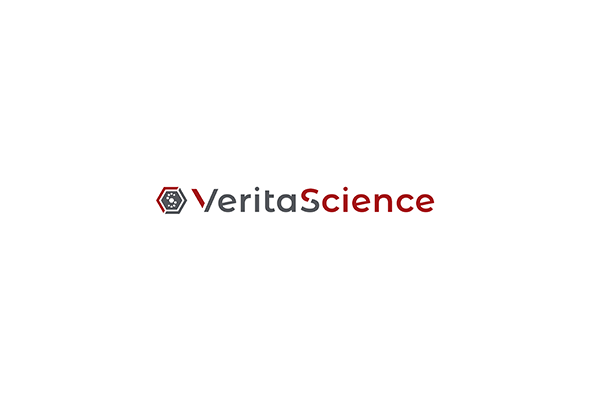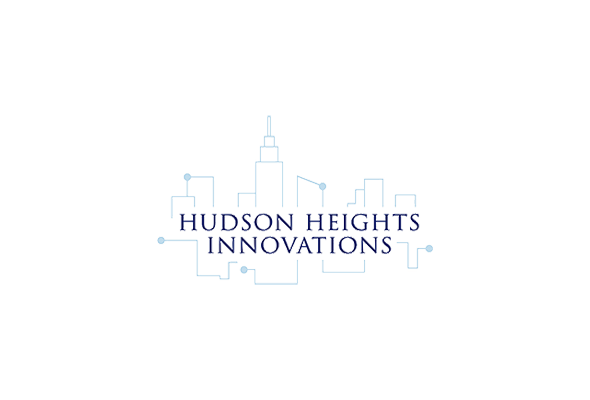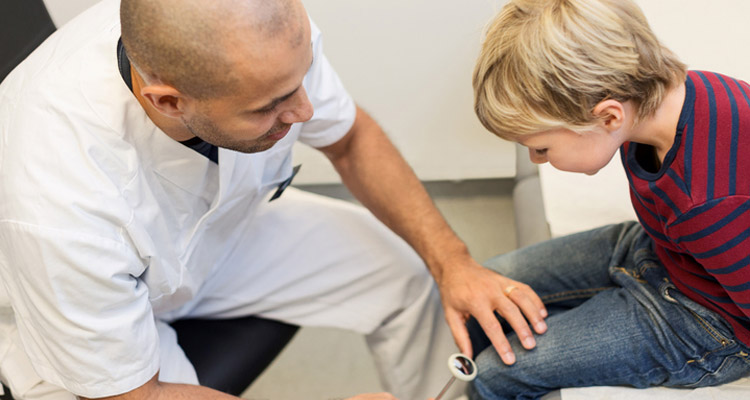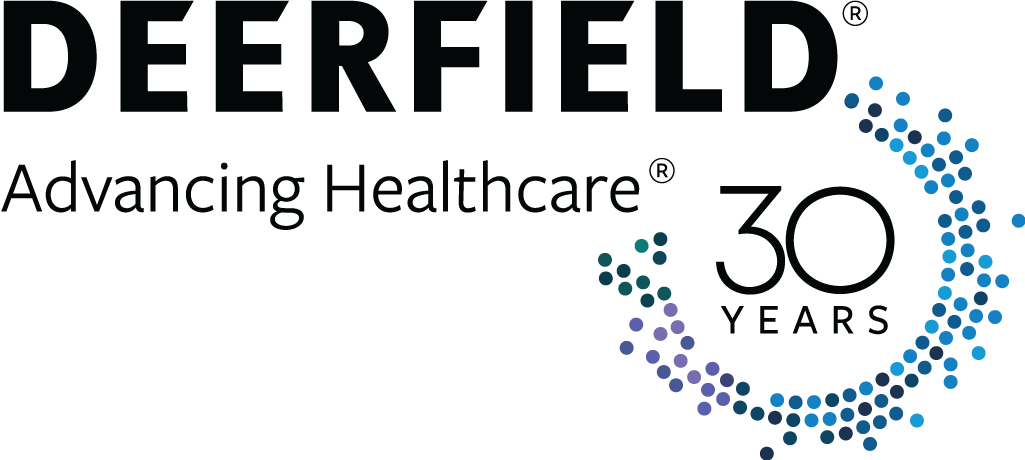In January 2024, Washington University in St. Louis and Deerfield Management announced the launch of VeritaScience, a private R&D collaboration designed to advance the discovery, clinical development and commercialization of promising therapeutic and diagnostic candidates with potential to benefit human health.

Washington University and Deerfield Management Launch VeritaScience to Drive Drug Discovery
Deerfield Management makes 10-year commitment of up to $130 million to accelerate translation of Washington University discoveries to improve human health
New York, New York, – January 16, 2024 Washington University in St. Louis and Deerfield Management (“Deerfield”), a healthcare investment firm, today announced the launch of VeritaScience, a new private R&D collaboration designed to advance the discovery, clinical development and commercialization of promising therapeutic and diagnostic candidates with potential to benefit human health.
To support projects that originate from the collaboration, Deerfield has committed up to $130 million over the next 10 years, along with functional expertise, through a newly formed company. Washington University’s investigators will have the opportunity to work with Deerfield’s internal team, which has expertise across the drug development continuum from discovery through commercialization. VeritaScience is named to honor Washington University’s motto “Per Veritatem Vis,” which means “Strength Through Truth” in Latin.
The VeritaScience collaboration complements the university’s existing efforts in drug development and its innovative culture. Project proposals can be designed around any disease indication. Washington University’s investigators will submit project proposals to VeritaScience and its scientific review team, which is led by Deerfield experts and guided by the university’s Office of Technology Management and Washington University School of Medicine’s (“WashU Medicine”) business development team. Accepted drug discovery projects will receive a development plan aimed at achieving Investigational New Drug readiness and may be eligible for additional funding and support for the creation of separate, start-up companies.
Washington University is known worldwide for its innovative research programs in the medical sciences, aimed at improving human health. The university currently is ranked #7 in National Institutes of Health (NIH) funding among U.S. universities, with $633 million received in the 2023 federal fiscal year. This includes nearly $584 million in funding for research initiatives at WashU Medicine, which currently is ranked #2 in NIH funding among U.S. medical schools.
“The exciting collaboration with Deerfield Management to create VeritaScience represents yet another major approach to leveraging the research capabilities of Washington University,” said David H. Perlmutter, MD, the George and Carol Bauer Endowed Dean of Washington University School of Medicine, executive vice chancellor for medical affairs, and the Spencer T. and Ann W. Olin Distinguished Professor. “Deerfield has extensive experience in academic-industry partnerships, and this agreement allows us to further advance the ‘virtuous cycle of academic medicine’ and our commitment to translating ever more of the landscape-altering discoveries happening in our labs into tools and therapies that will concretely improve human health and alleviate suffering.”
The VeritaScience collaboration is an example of Deerfield’s engagement with research institutions. Currently, Deerfield’s network includes nearly 30 leading research institutions and medical centers, which aims to bring the healthcare ecosystem together to collaborate and learn from each other. Together with its research partners, Deerfield has provided funding and expertise to create spin-off companies that support key avenues from concept to spin-out of novel therapeutic discoveries.
“Throughout the process of forming VeritaScience, what has stood out to our team at Deerfield is the forward-thinking and innovation-focused Washington University culture,” said James Flynn, managing partner of Deerfield. “We intend to equip the researchers of selected projects with flexible capital, expertise, and operational support to help them realize their discoveries’ potential.”
ABOUT WASHINGTON UNIVERSITY
Washington University in St. Louis is counted among the world’s leaders in teaching, research, patient care and service to society. The university draws students and faculty to St. Louis from more than 100 countries and all 50 states, the District of Columbia, Guam, Puerto Rico and the Virgin Islands. The total student body is approximately 14,000 undergraduate, graduate and professional students. Washington University has been affiliated with 25 Nobel laureates, many of whom did a significant portion of their award-winning work at the university. The university offers more than 90 programs and almost 1,500 courses leading to bachelor’s, master’s and doctoral degrees in a broad spectrum of traditional and interdisciplinary fields, with additional opportunities for minor concentrations and individualized programs.
WashU Medicine is a global leader in academic medicine, including biomedical research, patient care and educational programs with 2,800 faculty. Its National Institutes of Health (NIH) research funding portfolio is the second largest among U.S. medical schools, has grown more than 40% in the last six years and, together with institutional investment, WashU Medicine commits well over $1 billion annually to basic and clinical research innovation and training. Its faculty practice is consistently within the top five in the country, with more than 1,800 faculty physicians practicing at over 65 locations and who are also the medical staffs of Barnes-Jewish and St. Louis Children’s hospitals of BJC HealthCare.
ABOUT DEERFIELD MANAGEMENT
Deerfield is an investment management firm committed to advancing healthcare through investment, information and philanthropy. The Firm works across the healthcare ecosystem to connect people, capital, ideas and technology in bold, collaborative and inclusive ways. For more information, please visit www.deerfield.com.
Media Contact:
Anthony Karamourtopoulos
Diane Duke Williams
Genomics: How Next Generation Sequencing Might Play Out and the Implications for Precision Medicine
Precision medicine holds the promise of providing patients with therapies that target the biological mechanism contributing to a particular individual’s disease. Historically, the approach to developing novel medicines has lacked the ability to optimize therapy based on specific factors resulting in an individual patient’s disease state.
Although many drugs have been approved on the basis of clinical trials run in all patients with a disease, some patients enrolled in those trials have had a strong treatment effect while others had minimal to no effect due to biological diversity. With the advent of next generation sequencing (NGS), we now have the ability to understand the diversity of pathways and patient subsets that make up the broader diseased population. This affords the ability to develop therapies for a given patient that targets their specific genetic alteration.
Cancer has been a leading beneficiary of these advances. From a research perspective, biologists can now use next generation sequencing to identify mutations present in patient tumors. Many of these new insights have allowed researchers to further our understanding of cancer biology, although this is only the beginning to the development of targeted therapeutics. In addition to the identification of a novel mutation, researchers and clinicians must advance the science into clinical practice by validating the target through clinical trials in the relevant subset of patients.
This path to clinical validation runs counter to traditional drug development which typically require large trials to prove a drug is effective. With many patient subsets (or mutations) that might exist within a given cancer, it is typically not feasible to run large clinical trials. Yet, despite these challenges, a fundamental understanding of the biology and administration of appropriately targeted therapies has proven adequate by regulators to approve novel drugs. This has resulted in a rapid time to approval, bringing novel therapies to market in record time.
While NGS continues to hold tremendous promise toward the goal of precision medicine, there are a number of practical and technological challenges that currently limit broad applicability. Given the size of the human genome, there is a tremendous amount of data generated per sample of tissue. With existing sequencing technologies, performing whole genome sequencing can take 2-3 weeks due to the processing and interpretation of data. This is a challenge in the clinical setting since patients presenting with cancer may not tolerate a significant delay between diagnosis and therapy.
Additionally, while the cost of whole genome sequencing has come down over time, it can exceed thousands of dollars per sample making it prohibitive to adopt for all patients due to sheer cost. We anticipate that competition and improvement in technology will improve both the speed of a test result and cost thereby making it more accessible to the masses.
NGS also has technical limitations that limit broad clinical applicability. Genomic data derived from NGS technologies are descriptive and static representing a snapshot of the genetic mutations in a small sample of tissue. With cancer being a constantly mutating disease, it is important to keep up with the evolving genetic composition to optimize therapy over time. Additionally, a mutation in one tissue sample may not reflect the broad array of mutations present throughout the entire tumor.
A number of emerging technologies appear to have the potential to address these limitations. Liquid biopsy technologies can identify circulating genetic information, are non-invasive, and can provide a near real-time result, thereby holding the promise of a valuable monitoring and treatment optimization tool. There are also a host of functional genetic and cellular technologies that provide more detailed information as to which mutations are most importantly related to the process contributing to a given patient’s cancer. With the improvements of existing NGS technologies and introduction of novel technologies that can supplement our understanding of cancer biology, we are moving closer to the promise of precision medicine for all patients. Continued investment in the space holds the promise of making these technologies ubiquitous, low cost, and increasingly informative. Moreover, the speed at which novel biological insights can be tested and validated in the clinical setting are likely to increase rapidly as our knowledge of the underlying biology increases.
Afib treatment advances publish in prominent medical journals
Real-time feature of Acutus’ AcQMap results in improved patient outcomes
A clinical trial investigating Acutus’ AcQMap showed that this novel imaging and mapping system safely guided cardiac ablation resulting in a 12-month freedom from recurrent atrial fibrillation (AFib) in 73 percent of patients with persistent atrial fibrillation.
The results, published in the July 1, 2019 issue of the Journal Circulation: Arrhythmia and Electrophysiology were first reported earlier this year in a late-breaking trial at the 24th Annual AF Symposium in Boston.
Known as UNCOVER-AF, the trial prospectively studied the safety and efficacy of the AcQMap in 127 patients at 13 sites in Europe and Canada – 98 percent of whom achieved a normal heartbeat upon completion of the procedure.
Characterized as an irregular heartbeat, AFib is the most common type of heart arrhythmia and could greatly increase a person’s risk of developing a severe stroke. Cardiac ablation is a procedure that can reduce the risk, yet traditional ablation procedures often fail to achieve long-term absence of AFib, resulting in repeat ablation procedures.
With its precision ultrasound and high definition re-mapping capabilities, AcQMap helps inform physicians in real time who can strive to improve outcomes by checking their work after each ablation.
Adapted from Acutus’ news release: Publication of UNCOVER AF Study in Circulation Demonstrates Impact of Charge Density Mapping During AF Ablation
Acutus has been a Deerfield portfolio company since 2016.
Farapulse PFA shown as potential alternative to existing ablation procedures
A method of non-thermal field ablation demonstrated safety and efficacy in clinical trials comparing outcomes of the modality to those seen with traditional thermal approaches in patients with paroxysmal atrial fibrillation, or episodic AFib.
The results of the first-in-human trial were reported in an online early version of the manuscript that is slated to publish in the Journal of the American College of Cardiology.
Called pulsed field ablation (PFA), the alternate modality was shown to successfully target heart tissue without damaging adjacent structures like the esophagus or phrenic nerve – a shortcoming of standard ablation therapies, including radiofrequency (via heat) and cryotherapy (by way of freezing).
In 81 patients, 100% of pulmonary veins (PV) were specifically isolated with three minutes of PFA time per patient. Furthermore, long-term remapping procedures demonstrated that the rates of durable PV isolation improved with successive waveform modifications with the most optimized PFA group demonstrating 100% durability.
The rate of primary safety events was low at 1.2%, and with no subsequent primary adverse events during follow-up.
Farapulse has been a Deerfield portfolio company since 2017.

Deerfield Management Brings Together Scientists, Entrepreneurs and Leading Companies to Form the New York-Based Healthcare Innovation Campus
$635 million in real estate and multi-disciplinary laboratory infrastructure will combine with multi-billion dollar investments in research to transform the battle against disease
NEW YORK, NY, September 26, 2019—In a major move, Deerfield Management Company, L.P. is investing $635 million to create a transformative life sciences campus in New York City, designed to integrate the capabilities of innovators from academia, government, industry and the not-for-profit sectors to tackle unmet needs in healthcare. Deerfield additionally announced that it intends to commit more than $2 billion in research and seed funding by 2030 to develop much-needed new and innovative medicines and treatment solutions. Deerfield expects this world-class infrastructure and funding to contribute to the prevention, cure or management of dozens of still deadly and debilitating diseases.
As the foundation of this bold undertaking, Deerfield has acquired the 345 Park Avenue South property, which boasts more than 300,000 square feet. The site, designated a NYCLifeSci campus, will bring together scientists, entrepreneurs and leading organizations from around the world to work shoulder-to-shoulder to conceive of and develop new treatments and better ways to prevent and defeat disease. The campus will provide turnkey laboratories, and engineering and computing space, as well as other amenities and supportive services.
“We are proud to be part of a community of people in New York who strive to save and extend lives. Creating an environment in which innovative thinking, ground-breaking advances in scientific discovery and where the development of new paradigms of patient care will occur every day is tremendously exciting,” said James Flynn, Managing Partner of Deerfield.
“We are thrilled that our partnership with Deerfield will not only create quality jobs for New Yorkers but will also help provide a home for emerging companies to develop breakthrough scientific discoveries. New York City already has the best research institutions in the world. By investing in this Life Sciences campus to bring new lab space and programming for healthcare and early-stage biotech companies, we can strengthen the City’s position as a global leader in life sciences,” said NYCEDC President & CEO James Patchett.
The $540 million in financing for the acquisition and renovation of this world-class facility was led by Blackstone Real Estate, which has been a strong supporter of life sciences.
Nadeem Meghji, Senior Managing Director, Head of Real Estate Americas at Blackstone said, “We are thrilled to finance this important project, which will advance life sciences research in New York City. With our investment in BioMed Realty, and elsewhere across our businesses, life sciences is among our highest priority investment sectors. We look forward to continuing to support the growing demand for research and innovation.”
The building construction and programming is being backed by the New York City Economic Development Corporation and Industrial Development Agency. It is expected to be in move-in ready condition for Deerfield and other innovators in healthcare by early 2021.
Due to obstacles, including a lack of capital and siloed approaches, promising new therapies and improvements in care management frequently fail to make it to patients. In addition to leveraging the value of public and private organizations in developing solutions, the Deerfield innovation campus will pursue all forms of technology, including digital, medical device and biotherapeutic approaches.
“Many leaders have come together to build this incredible ecosystem, capable of accelerating the fight against disease. This campus should create the ideal backdrop to advance innovation,” said Alex Karnal, Partner and Portfolio Manager at Deerfield. “We are grateful to our partners, including the New York City Economic Development Corporation and Blackstone, as without them, this ambitious project might not have been possible.”
Having proven its ability to mobilize innovators in this space, MATTER, a healthcare focused incubator, in collaboration with Deerfield, will be supporting startups of all stages within the innovation campus. MATTER has developed extensive specialized programs to train C-suite executives in the early stages of their career and to introduce young companies to established organizations for mentorship, collaboration and potential acquisition. Combined with Deerfield’s operating support capabilities which extends to legal, finance, information technology, human resources, and market research, among other skillsets, companies formed within the campus will have unparalleled access to capabilities of the highest quality at low cost.
“Deerfield’s expertise and resources, combined with MATTER’s capabilities and experience, will create a healthcare and life sciences campus unlike any other,” said MATTER CEO Steven Collens. “We are thrilled to be a part of this endeavor to help entrepreneurs and innovators develop technologies and solutions that will improve the healthcare experience.”
Along with new educational programming being developed—and to complement the services provided by MATTER—Deerfield also announced that it will be growing its existing Deerfield LifeSci NYC Fellows and Break into the Boardroom programs. Deerfield additionally introduced a new initiative, Women in Science, focused on training women on how to commercialize their potentially lifesaving discoveries and create companies. The investment company has a rich history of developing and leading programs supporting diversity.
About Deerfield
Deerfield is an investment management firm committed to advancing healthcare through investment, information and philanthropy.
For more information, please visit www.deerfield.com
Contacts
Deerfield Management Company
Karen Heidelberger, 212-551-1600
[email protected]

Columbia University and Deerfield Management Launch Hudson Heights Innovations
Deerfield commits up to $130 million to accelerate drug discovery at Columbia
(New York, NY, June 5, 2019)—Columbia University and Deerfield Management, a healthcare investment firm, today announced the creation of a major research and development alliance. The collaboration is intended to advance the translation of biomedical discoveries into transformative treatments for improved quality of life and cures for disease.
Through a newly launched company called Hudson Heights Innovations, up to $130 million of initial funding will be made available to back the initiative over 10 years by Deerfield and its partners. In addition, Deerfield will provide development expertise in support of innovative drug research across a span of high-need therapeutic areas, as well as those targeting patients who suffer from hard-to-treat and rare diseases.
With the Columbia side led by Columbia Technology Ventures, the alliance is expected to catalyze the development of novel therapeutics out of the research labs of Columbia University and accelerate these discoveries toward clinical validation in patients.
“Much of our research is aimed at understanding at the molecular level how diseases develop and how we can intervene with drugs or other therapeutics,” said Lee Goldman, MD, Dean of the Faculties of Health Sciences and Medicine and Chief Executive of Columbia University Irving Medical Center. “The goal of our alliance with Deerfield is to shepherd those discoveries into clinical development as rapidly as possible and create new therapies that improve the lives of patients.”
Each year, Columbia University researchers create more than 400 scientific inventions, which ripen into over 200 new patent applications, over 100 licenses to industry, and over 20 new intellectual property-backed startups. These inventions eventually save and improve the lives of people around the world, and the revenue generated flows back to the inventors and university to help catalyze new research breakthroughs in the future.
“The life science inventions emerging from Columbia’s research labs are often incredibly promising, with a high potential for making a transformative impact on human health. However, basic scientific research needs validation in preclinical and clinical-stage development before it can make a difference in patients,” said Orin Herskowitz, executive director of Columbia Technology Ventures. “Beyond the funding itself, the drug development, commercialization and operational expertise provided by Hudson Heights Innovations will hopefully ensure that more of these inventions make a positive impact in society, as quickly as possible.”
Starting this fall, Columbia researchers will have the ability to submit proposals on projects for consideration by a Hudson Heights Innovations committee comprising scientific leadership representing both Columbia and Deerfield. Accepted projects will include a development plan aimed at achieving Investigational New Drug (IND) readiness. Deerfield will provide funding and operational support for accepted projects, and successful projects that achieve IND-enabled status may be eligible for additional capital from Deerfield.
“We hold Columbia’s research enterprise—a city in itself of preeminent research centers and institutes—in the highest regard. And we believe that New York City is on its way to becoming a leading life science capital and the perfect venue for our collaboration with Columbia, as we collectively seek to develop new medicines to address unmet medical needs,” said James E. Flynn, managing partner at Deerfield. “The Columbia investigators will have Deerfield’s support to expedite the drug development cycle, which we expect will allow patients to receive treatments faster and physician-scientists more time to turn their attention to the next discovery.”
Under the terms of the agreement, Hudson Heights Innovations would receive an option to license Hudson Heights Innovations-funded intellectual property developed at Columbia.
About Columbia University
Among the world’s leading research universities, Columbia University in the City of New York continually seeks to advance the frontiers of scholarship and foster a campus community deeply engaged in understanding and confronting the complex issues of our time through teaching, research, patient care and public service. The University is comprised of 16 undergraduate, graduate and professional schools, and four affiliated colleges and seminaries in Northern Manhattan, as well as a wide array of research institutes and global centers located in major cities around the world. More than 40,000 accomplished students, award-winning faculty and professional staff define the University’s underlying values and commitment to pursuing new knowledge and educating informed, engaged citizens. Founded in 1754 as King’s College, Columbia is the fifth oldest institution of higher learning in the United States.
About Deerfield Management
Deerfield is a healthcare investment management firm committed to advancing healthcare through investment, information and philanthropy.
Contact
Connolly Jurkiewicz, [email protected], 212-854-3576
Karen Heidelberger, [email protected], 212-551-1600

Duchenne Muscular Dystrophy Prevalence Increases, While Incidence Remains Steady
Uptick attributed to improved treatments and longevity
New York, NY, May 23, 2019—In the first study of its kind involving Duchenne Muscular Dystrophy (DMD) in the U.S., researchers from the Deerfield Institute found that while the number of new cases has remained stable, there has been an uptick in prevalence—largely attributed to enhanced treatments and longevity. The study, which is titled “Duchenne Muscular Dystrophy Prevalence in the U.S.: A Novel Incidence-Based Modeling Approach Using System Dynamics”, was featured in a recent poster session at the ISPOR 2019 annual meeting in New Orleans.
DMD, a genetic disorder characterized by progressive muscle degeneration and weakness, is caused by an absence of Dystrophin, a protein that helps keep muscle cells intact. Symptom onset is in early childhood, typically between ages 3 and 5. The disease primarily affects boys, but in rare cases it can affect girls.
Using a triangular distribution of incidence rates identified in the literature2,3, a sensitivity analysis was run to estimate the diagnosed incidence of DMD in the U.S. at 17.24 per 100,000 live male births, corresponding to approximately 362 incident cases in 2019; diagnosed prevalence was found to be 6.09 per 100,000 male population across all age groups, corresponding to about 10,015 prevalent cases in 2019.
The Deerfield Institute researchers found that while the majority (64.5%) of DMD patients are under the age of 20, there is a significant number of older DMD patients up to 45 years of age that were excluded from previous prevalence estimates. 4 The prevalence of DMD among males, aged 45 or younger, was found to be 10.0 per 100,000 vs previously estimated prevalence estimates of 1.38 per 10,000 among males 5 to 24 years of age.
“We hypothesized that the prevalence of DMD has increased over the past few decades, due predominantly to improvements in treatment and care” said Emma Giegerich, MPH, an epidemiologist with the Deerfield Institute and co-author of the study. “Our incidence-to-prevalence model was built using system dynamics principles and birth-cohort-specific survival curves to get the most accurate picture of the disease landscape and its current burden. The results indicate that there is a larger than expected patient population that may benefit from novel treatment interventions, such as targeted gene therapies, potentially improving the viability of current or future drug development programs.”
The study was co-authored by Mark Stuntz, MPH, a former Deerfield Institute investigator.
1 Retrieved from https://www.mda.org/disease/duchenne-muscular-dystrophy.
2 Dooley J, Gordon EK, Dodds L, MacSween J. Duchenne muscular dystrophy: a 30-year population-based incidence study. Clinical Pediatrics 2010;49(2):177-179.
3 Mendell JR, Shilling C, Leslie ND, Flanigan KM, al-Dahhak R, Gastier-Foster J, Kneile K, Dunn DM, Duval B, Aoyagi A, Hamil C, Mahmoud M, Roush K, Bird L, Rankin C, Lilly H, Street N, Chandrasekar R, Weiss RB. Evidence-based path to newborn screening for Duchenne muscular dystrophy. Ann Neurol 2012;71:304-313.
4 Romitti PA, Zhu Y, Puzhankara S, James KA, Nabukera SK, Zamba GK, Ciafaloni E, Cunniff C, Druschel CM, Mathews KD, Matthews DJ, Meaney FJ, Andrews JG, Conway KM, Fox DJ, Street N, Adams MM, Bolen J, STARnet MD. Prevalence of Duchenne and Becker muscular dystrophies in the United States. Pediatrics. 2015;135(3):513–21.
About the Deerfield Institute
The Deerfield Institute is the research division of Deerfield Management, a health care investment management firm committed to advancing health care through investment, information and philanthropy.
Contacts
Karen Heidelberger, [email protected], 212-551-1600

UIC and Deerfield Management launch West Loop Innovations to foster development of new therapeutics
CHICAGO, IL, and NEW YORK, NY, APRIL 23, 2019—The University of Illinois at Chicago and Deerfield Management announced today the establishment of West Loop Innovations, LLC. The company will help accelerate the commercialization of therapeutics developed at UIC. Deerfield will provide up to $65 million in translational research funding and commercialization expertise to advance promising UIC discoveries.
“One of our core competencies at UIC is drug discovery,” said TJ Augustine, Interim Vice Chancellor for Innovation at UIC. “We have three major drugs in the marketplace, placing UIC among a very small number of research universities. Our new partnership with Deerfield not only adds significant translational research funding, but also brings critical support for the startup companies that will take UIC’s discoveries and turn them into products.”
The UIC-Deerfield partnership is also a major development for the new University of Illinois System-led Discovery Partners Institute (DPI). UIC faculty projects supported by Deerfield will advance the DPI’s health and wellness efforts. Once constructed, these efforts may be pursued at the DPI-supported Drug Discovery and Innovation Pavilion on the UIC campus and at the permanent DPI headquarters to be built in Chicago, bringing together researchers, students and industry to pursue new, innovative therapeutics.
“West Loop Innovations together with the establishment of the Discovery Partners Institute will provide the resources and expertise to accelerate drug discovery and develop our already robust drug pipeline,” said University of Illinois President Tim Killeen. “UIC has exceptional expertise in identifying new drug targets and therapeutics, and our collaborative partnership with Deerfield will help get more of those discoveries out into the marketplace.”
Starting this fall, UIC researchers will be able to submit proposals for projects to be supported by West Loop Innovation. Projects will be approved by a joint committee made up of members from UIC and Deerfield’s scientific leadership team. Accepted projects will receive a development plan, resources to achieve Investigational New Drug (IND) readiness and operational expertise. Successful projects will have access to additional Deerfield capital, which is designed to eliminate the need for researchers to raise additional funds to bring their ideas to market.
“Our new partnership with Deerfield Management will help further establish UIC as a top academic research institution and leader in translational medicine,” said UIC Chancellor Michael Amiridis. “We are looking forward to working with Deerfield to nurture and commercialize new therapeutics that will improve people’s lives around the world.”
“UIC’s research capabilities have been magnified by the launch of its Discovery Partners Institute, creating a strong platform for the identification and acceleration of therapeutic discovery,” said James E. Flynn, Managing Partner at Deerfield Management. “We are delighted to enter into this partnership with UIC to advance novel scientific insights made on its campus and to speed new medicines to patients with critical unmet needs.”
About the University of Illinois at Chicago Office of Technology Management
The UIC Office of Technology Management works with faculty, staff, and students to advance research, education and economic development. One of its primary functions is to assist in the licensing of innovations. The office currently manages 281 active licenses, including 34 with startup companies. UIC has three major drugs on the market today, including Prezista, an anti-HIV drug sold by Janssen Therapeutics; Tice BCG, a bladder cancer drug in the Merck portfolio; and Shingrix, a vaccine against the shingles virus approved by the FDA in 2017 and marketed by Glaxo Smith Kline. UIC OTM has a proven track record of successful licensing with an estimated revenue of over $40 million in 2019 and over $200 million in income in the past decade.
About Deerfield Management
Deerfield is a healthcare investment management firm committed to advancing healthcare through investment, information and philanthropy.
Contacts
Sharon Parmet, [email protected], 312-413-2695
Karen Heidelberger, [email protected], 212-551-1600

Harvard and Deerfield establish Lab1636, a major translational research alliance
Deerfield commits $100M to inject fuel into translational life science research at Harvard
Cambridge, Mass. – March 13, 2019 – Harvard University and Deerfield Management, a healthcare investment firm, have established a major strategic R&D alliance to speed the development and translation of biomedical and life-science innovations into transformative treatments that can improve life, health, and medical care. Through a newly launched company called Lab1636, Deerfield has committed an unprecedented $100 million in initial funding to support the alliance.
Spearheaded by Harvard Office of Technology Development (OTD), the alliance is expected to catalyze the development of novel therapeutics and rapidly drive innovations toward clinical validation.
“We envision the Harvard-Deerfield collaboration as a powerful means to fuel translational research across the University, enabling promising innovations to advance beyond their laboratory roots,” said Harvard Provost Alan M. Garber.
“By working with an alliance partner who is prepared to support early-stage research and to invest in the success of pre-clinical and clinical-stage commercial development, we’re enhancing the opportunities for Harvard’s life-changing innovations to reach patients in need,” added Isaac T. Kohlberg, Senior Associate Provost and Chief Technology Development Officer at Harvard. “Success in a research alliance requires a partner with a long vision and operational and development expertise, as well as the financial resources, and we’re delighted to launch this initiative with Deerfield.”
A private company wholly owned by affiliates of Deerfield, Lab1636 will support Harvard R&D projects throughout various stages of drug discovery and development, for example enabling studies to explicate the biology of disease, validate therapeutic targets, or achieve a proof-of-concept necessary for filing an Investigational New Drug (IND) application.
“Harvard is an outstanding partner for an alliance,” said James E. Flynn, Managing Partner at Deerfield. “The University’s outstanding science, breadth of technologies, and mix of esteemed junior and senior faculty constitute a fertile environment for the continuous generation of novel insights. This, in combination with its experience advancing potential therapeutics, makes it the perfect place to establish an impactful translational partnership.”
At any research university, the most commercially promising innovations eventually outgrow the lab bench, requiring greater resources or more focused development than an academic setting can provide. In addition to funding research on campus, Lab1636 may facilitate licenses to outside companies and is equipped to provide substantial support to the launch and growth of new startups dedicated to developing Harvard technologies.
“The sheer scope of this collaboration with Deerfield may prove transformative for Harvard research,” said Vivian Berlin, Managing Director, Strategic Partnerships in OTD. “This alliance has immense potential to bridge the development gap, ensure continuity of resources, and complement our other major translational programs, such as the Blavatnik Biomedical Accelerator.”
Kohlberg added, “We hope that our R&D alliance with Deerfield will further sustain and speed the commercialization of innovations from across the University toward societal impact.”
Harvard’s R&D projects to be funded by Lab1636 will be selected by a joint advisory committee, and the projects will be initiated by principal investigators from labs across the University. The projects will generally focus on the development of novel therapeutics, ideally advancing many to a stage that would enable the filing of an IND application and, if successful, the commencement of clinical trials in patients.
About Harvard Office of Technology Development
Harvard’s Office of Technology Development (OTD) promotes the public good by fostering innovation and translating new inventions made at Harvard University into useful products that are available and beneficial to society. Our integrated approach to technology development comprises sponsored research and corporate alliances, intellectual property management, and technology commercialization through venture creation and licensing. More than 70 startups have launched to commercialize Harvard technologies in the past 5 years, collectively raising more than a billion dollars in financing. To further bridge the academic-industry development gap, Harvard OTD manages the Blavatnik Biomedical Accelerator and the Physical Sciences & Engineering Accelerator. For more information, please visit https://otd.harvard.edu.
About Deerfield Management
Deerfield is a healthcare investment management firm committed to advancing healthcare through investment, information and philanthropy.
Contacts
Harvard Office of Technology Development
Caroline Perry, 617-495-4157
[email protected]
Deerfield Management Company
Karen Heidelberger, 212-551-1600
[email protected]
Deerfield Management Advanced Healthcare Initiatives Globally Through Academic Collaborations, Publications, and Philanthropy
In addition to advancing healthcare through investment, Deerfield’s efforts through information and philanthropy have an unprecedented year
New York, NY – February 6, 2019 – Deerfield Management advanced healthcare initiatives globally in 2018 through five new academic collaborations, eight scientific publications, and 22 philanthropic partnerships. Deerfield’s intent is to participate in large scale efforts to enrich patients’ lives with early stage discovery support, novel peer-reviewed insights, and investments that can help tackle the issues affecting healthcare today.
Deerfield Academic Collaborations
In 2016 Deerfield began collaborating with academic institutions to create partnerships that provide funding and support to early stage therapeutics. Since then, Deerfield has developed nine companies across eight states developing expeditious pathways from concept to commercialization for novel therapeutic discoveries and one incubator focused on innovative cardiovascular devices.
Anticipating commitments of over $500 million in early stage research by 2021, Deerfield is uniquely positioned to support all stages of development from early stage to commercial opportunity. This capability has the potential to eliminate the hurdles researchers would face in finding new capital during this rigorous trajectory to the marketplace.
Deerfield Institute
Deerfield Institute’s research capabilities and survey analyses sparked the need to begin publishing its scientific findings for the greater good. Since 2015, the Deerfield Institute has published 50 articles,editorials, and abstracts. Whether it is identifying predictors of laparoscopic hysterectomy among leiomyoma patients or exposing the variability in the therapeutic management of advanced ovarian cancer patients, the publications are weighted in scientifically driven research and analysis and leverage the knowledge interpreted by Deerfield’s team of healthcare focused researchers.
“We have a sense of responsibility to share our insights and equip our ecosystem with the high quality, novel information required to accelerate and improve healthcare,” stated Alexis Cazé, partner and chief information officer at Deerfield. “Through collaboration, we ultimately increase the greater potential of improvement in the healthcare system.”
Deerfield Foundation
Since inception the Foundation has committed or invested approximately $40 million to 39 philanthropic partners that impact healthcare for children and families from underserved communities. In 2018, the Foundation reached 11 countries with 77% of its annual funding directed towards services,goods, and outreach, 12% to infrastructure and 11% to R&D.
The Foundation has recently been exploring new models and is increasingly interested in designing granting programs with measurable impact.Whether this means pay-for-performance or key performance indicators, creating business models that lead to a self-funding business can result in self-sustaining organizations that can thrive in any philanthropic environment. “Deerfield realized the importance of exploring pay-for-performance models by pioneering our Results Based Financing for Community Health pilot,” stated Lisa McCandless from Living Goods. “Since Deerfield’s commitment, Living Goods has propelled to the forefront of this initiative globally and continues to share its learnings and findings with the broader community.”A list of our academic collaborations from 2016 to 2018 are below:
- Center for Protein Degradation with Dana-Farber Cancer Institute
- Pinnacle Hill with the University of North Carolina at Chapel Hill
- Poseidon Innovation with UC San Diego
- Lakeside Discovery with Northwestern University
- Ancora Innovation with Vanderbilt University
- Academic collaboration with Broad Institute of MIT and Harvard
- Bluefield Innovations with the Johns Hopkins University
- Bridge Medicines with Memorial Sloan Kettering Cancer Center, the Rockefeller University, and Weill Cornell Medicine
- Vescor with the University of Texas MD Anderson Cancer Center
A sample of the peer reviewed publications, reviews and abstracts published in 2018 are listed below:
- A Hybrid Approach for Prediction of Event Times in Double-Blind Clinical Trials. Ming Zhu, Yunnan Xu, Zheng Su. Joint Statistical Meeting 2018
- Predictors of laparoscopic hysterectomy for leiomyoma surgical removal in the United States. Kate Busko, Mark Stuntz. Value in Health / ISPOR
- Analysis of Success Rates for the Center for Medicare and Medicaid’s New Technology Add-On Payment Program. Alexandra Truglio, Christine Livoti. Value in Health / ISPOR
- Trends in isolated mitral valve surgery: the changing risk profile of patients and outcomes. Andrew Elbardissi, Mark Stuntz. European Society of Cardiovasculaire and Endovasculaire Surgery International Congress 2018
- The importance of emerging transcatheter mitral valve technologies in cost-effectiveness and post-procedure outcomes. Andrew Elbardissi, Mark Stuntz. European Society of Cardiovasculaire and Endovasculaire Surgery International Congress 2018
- Impact of adverse media reporting on public perceptions of the doctor-patient relationship in China: an analysis with propensity-score matching. Jing Sun, Shiyang Liu, Qiannan Liu, Zijuan Wang, JunWang, Cecile Jia Hu, Mark Stuntz, Jing Ma, Yuanli Liu. BMJ Open, August 2018
- Potential role of emerging percutaneous mitral technologies in patients undergoing TAVR. Andrew ElBardissi, Mark Stuntz. JACC, September 2018
- Futility stopping in non-inferiority trials. ZhengSu, Mark Stuntz. Contemporary Clinical Trials Communications, December 2018.
In 2018, the Deerfield Foundation invested in the following projects with its philanthropic partnerships:
- Children’s Health Fund. Deerfield Child and Family Health Clinic and New York Program,providing high quality, comprehensive and compassionate patient-centered healthcare for underserved children and families.
- Coalition for the Homeless. Child Advocate to assist homeless families in New York City.
- Covenant House. Wellness center support: medications/supplies, mental health services,and staff training on mental health and best practices.
- Jacaranda Health. Support launch of a “nurse mentor training center” to build a pipeline of public sector maternity nurse champions and improve obstetric care in Kenya.
- Last Mile Health. Continue scale-up of Liberia’s National Community Health Assistant Program, cost-effectiveness study in Grand Bassa County and launch of the Community Health Academy’s first online, free, digital training course for community health system leaders.
- Little Sisters of the Assumption Family Health Service. Environmental Health Services Program and Maternity Outreach Program.
- Living Goods. Digital optimization of business practices – enabling transformational scale for community health.
- Lwala Community Alliance. Every child: strengthening health systems to reduce maternal and child mortality.
- Many Hopes. Provide physical and mental healthcare as well as a nutritious diet for orphans and abandoned children in its rescue homes and school.
- Medic Mobile. Scaling digital health tools for improved community-level care coordination in Nepal.
- Mifanmama. Eye Care Outreach Program.
- Muso. Proactive care delivery: rigorous implementation of research to save lives and support Mali’s National Community Health Worker scale-up.
- Northside Center for Child Development. Expand Northside’s capability to treat mental health issues in children age five and under.
- Partners In Health (Zanmi Lasante). Operating costs for Zanmi Beni Children’s home.
- Possible. Designing and scaling accessible, integrated healthcare solutions for underserved communities in Nepal.
- Réseau Des Entrepreneurs Solidaires. Deerfield RES Madagascar: support approximately 31 medical centers and dispensaries run in Madagascar.
- St.Boniface Haiti Foundation. Materials and staffing for the pediatric services ward of the St. Boniface Hospital in Fond des Blancs, Haiti.
- Sustainable Health Enterprises. Initial funding of SHE28’s technological innovations to produce go! pads for girls and women.
- The Family Center. Training and certification of six clinical staff members in Parent Child Interaction Therapy.
- The Mott Haven Academy. PNP services and medical clinic support, and contributions to establish and develop adolescent health programming in its middle school.
- The Water Trust. Scaling-up the Self-Help Group Program and publishing findings to provide children in East Africa safe water and healthy homes.
- Village Health Works. Equipping the pediatric and maternity unit of the Kigutu Hospital and Women’s Health Pavilion.
About Deerfield
Deerfield is an investment management firm committed to improving healthcare through investment, information and philanthropy.
For more information, please visit www.deerfield.com
Contacts
Deerfield Management Company
Karen Heidelberger,212-551-1600
[email protected]










